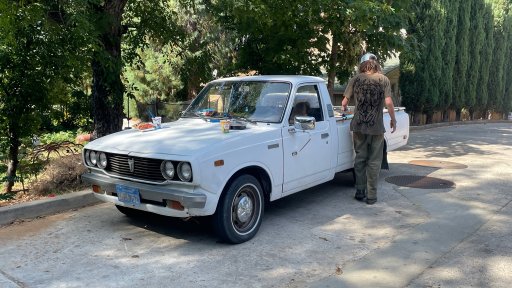Having not read all the responses, and driving a Taco Sport, I understand where you are coming from.
We just went to a FANTASTIC long weekend in VT, called The Pilgrimage. It is, essentially, a 4 day overland rally, at a campsite, with trails of all manner of challenges available for anyone to drive. There were vehicle of literally every caliber: from a bone stock, brand new Bronco Sport, all the way up to unimogs and even foreign military vehicles. Jeeps, Landys, 70 series, 80 series, trucks-you name it. Some purpose built for extreme trails, some what I personally consider "overland" builds.
Now, I am not here to define overlanding for anyone. I came from the jeep world, where bigger is better. And, even though, up here in New England, a 37" tire Jeep on a 3" lift is utterly pointless, people still build them, for VERY specific places (New England is 95% developed land, so we dont have a lot of places to be able to go offroad). But, what I DID learn, is what I need for MY area and what I am comfortable driving.
Lets start off with my vehicle. I have a 21 Tacoma TRD Sport, with a 6 speed manual transmission. No locker. I have a 2.5" lift, heavy front springs, and an AAL leaf in the rear. I am riding on stock 17" wheels, with Falken 255/70/R17s. This gives me about, roughly, 16" or so at the lowest point of the truck.
After running some green trails, and green/blue trails (trail ratings, which are subjective, in VT, are green=any stock 4WD vehicle, blue=slightly modified, with a lift and bigger tires, and red=purpose built rigs), several things came to light:
First, a LOT of the capability of the vehicle comes from the driver, their experience, and knowing the limits of the vehicle itself.
Second, here in New England, we have a lot of exposed granite rocks, which can make a bad day, fast, on the trail.
Third, what someone calls, lets say, a green trail, might have been green WHEN THEY DROVE IT, but isnt now (mind you, these trails are unmaintained "roads", which at one time might have been cart path), and could be in worse, or better, condition, depending on the weather and, honestly, last time someone rated it.
Driving these trails, the one real thing I wished I had, was under armor protection. I HAD side steps on the truck, but those came off as soon as I got home (they got caught on everything, sucked in mud holes, etc). Rock rails and full under panel protection up here is a must. Granite doesnt give against metal. And I would much rather drag a skid plate over a rock, than my diff.
The extent of me doing extreme off roading is pretty low. I enjoy challenges, but am not really interested in extreme rock crawling, or fording rivers as high as my door, or anything like that. Ulitmately, we will be getting a small overland trailer, and that further limits our ability to do those things (having a trailer, traversing the side of a mountain, at an angle, is pretty sketchy-if that thing loses traction, its an anchor, and its taking you wherever it is going). I will also be getting slightly bigger tires, going up to 32", again, more for any POSSIBLE encounters with bad terrain, than to traverse that bad terrain at any great length.
This weekend taught me a lot of what I want to do, and the style of travel I want to participate in. If you have clubs local to you, sit in, ask questions, and start with some easier trails. Easy, again, is subjective-what one person, who has been guiding for a decade, sees as easy, another person, who is going off road for the first time, sees as a white knuckler. But, with good instruction, a trail that is challenging but doable, and a little devil may care attitude, you should be able to dial in exactly what you want to do, and what you think you might need to achieve that with your build











